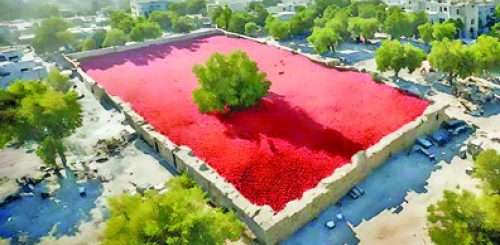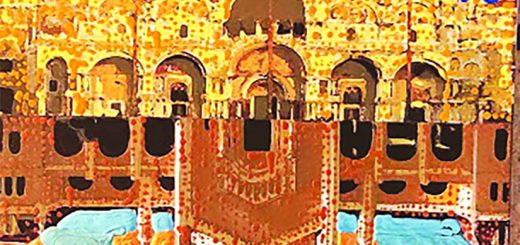Mirror Reflection
The exhibition ‘Mirror Reflection’ brought together ten Bosnian artists in their creative expression to explore Islamic spirituality, as a part of their cultural heritage.
Art and spirituality are inseparable, so artists have the need to constantly visually explore and show another side of the this world, the inner dimensions of our existence. Meliha Tepari?, the curator of the exhibition explains “Since spirituality in its base is elusive and unthinkable any attempt to present it becomes a subjective perception, a reflection of images, hence the name of the exhibition ‘Mirror Reflection’.”
The exhibition ‘Mirror Reflection’ featured ten Bosnian artists: Admir Mujki?, Amela Hadžimejli?, ?azim Hadžimejli?, Halida Emri?, Haris Memija, Meliha Tepari?, Mirza Agic, Samir Sinanovi?, Sead Emri? and Taida Jašarevi?.
Capturing the form and movement of dervishes is very inspiring to many artists and photographers. In the graphic prints Admir Mujki? shows dervishes as spiritual silhouettes; a photographer Haris Memija captures the movement and the atmosphere during the dervish performances in the series of photographs titled ‘Ashq in Bosnia’, while a photographer Mirza Agi? explores black and white photography to present a symbolic notion that dervishes reject the black uniform of the material world using white robes as a metaphor for the spiritual world.
Admir Mujki?, Krajišnik, iris print
Haris Memija, Ashq in Bosnia
Mirza Agic, Sema, Dervish Dance, 2015
The work by well known Bosnian calligrapher and book binding expert ?azim Hadžimejli? shows prints on the leather, gilded with gold to symbolize a pure and crystallized soul converted to illuminated gold.
?azim Hadžimejli?
It was interesting to see the ninety-nine bowls of clay by ceramic artist Halida Emri?, each in a different colour symbolizing the 99 divine names and attributes of Allah.
Halida Emric, 99 bowls of clay
Meliha Tepari? works with calligraphic forms in kufic style, researching meaning and interpretation while using negative and positive form to indicate the overall complexity of all the things around us, and their primary, inner dimension of existence.
Meliha Tepari?, Allah, Muhammad and Ali, 2015, wood
The photographs by Samir Sinanovi?, inspired by Rumi’s verse ‘love is the perfect thirst’, were photographed somewhere in the heart of the Bosnian mountains. They show rocks and waterfalls from which a drop of water separated from its original condition and was transformed like a dervish in ecstatic dance.
Samir Sinanovi?, Sema, 2014
The graphic prints by Taide Jašarevi? are inspired by Rumi’s verse ‘we were born and live in this black water’ as a metaphor of constant change of life while the essence remains the same, and that is love; while graphic prints by Sead Emri? show symbols of the Suleyman seal – a circular calligraphic rosette of the Sinan Tekke and motives of Bosnian dishes.
Taida Jašarevi?, From the Series Black Water, deep print (intaglio), 110×110 cm
Sead Emric
At the exhibition we could also see a video by Amela Hadžimejli? that present a sound of the dervish ritual dhikr, combined with different designs of tekija’s carpets.
Amela Hadžimejli?, a still from the video ‘Dhikr’, 2009
Installation view
Installation view
Installation view
The exhibition was on view until July 30, 2015 at the Yunus Emre Cultural Center in Sarajevo, as a part of the Ramadan Festival.
















Recent Comments